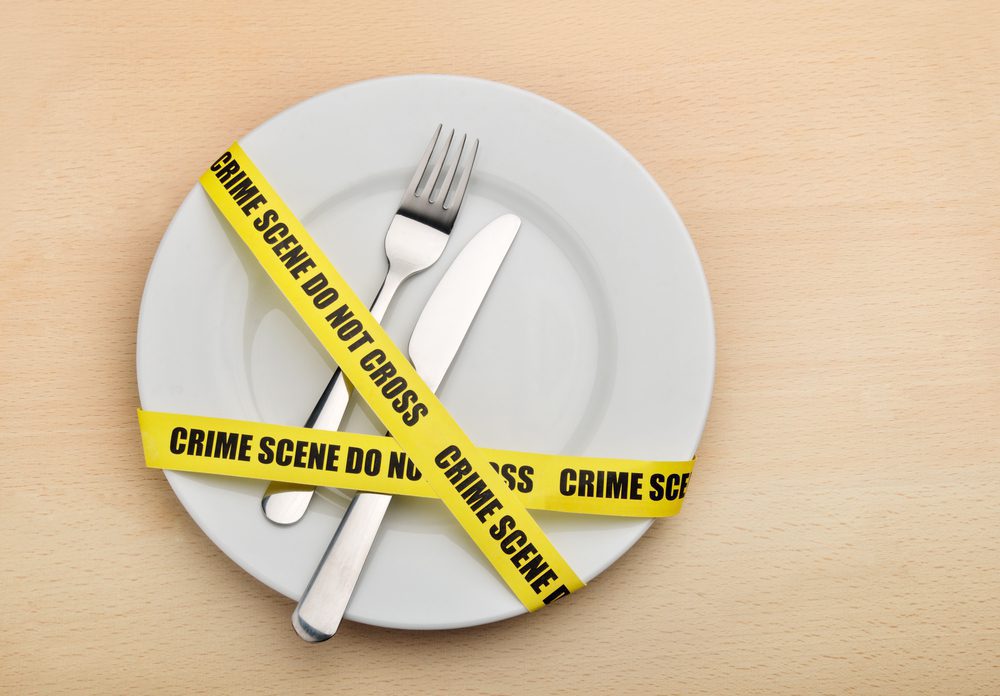For millions of Americans living with kidney disease, the simple act of grocery shopping can feel like navigating a minefield. While certain foods may seem healthy on the surface, they could be secretly contributing to declining kidney function and other serious health complications.
Recent studies have shown that dietary choices play a crucial role in managing kidney disease, with some common ingredients potentially accelerating kidney damage. As rates of chronic kidney disease continue to rise across the country, understanding which foods to avoid has become more important than ever.
The hidden dangers in your daily diet
Your kidneys work tirelessly as your body’s natural filtration system, processing over 150 quarts of blood daily to remove waste and excess fluid. When these vital organs become compromised, seemingly innocent dietary choices can have serious consequences.
The salt surprise: Hidden sodium sources
The average American consumes nearly 50% more sodium than recommended daily, often without realizing it. While table salt might be an obvious culprit, dangerous amounts of sodium lurk in unexpected places. Common breakfast cereals can contain up to 300mg per serving, while a single slice of bread might harbor approximately 200mg. Even cottage cheese packs 400mg per half-cup, and vegetable juice contains around 480mg per cup. These hidden sodium bombs can trigger dangerous fluid retention and blood pressure spikes in kidney disease patients. Medical professionals recommend keeping daily sodium intake below 2,300mg, equivalent to about one teaspoon of salt.
The potassium paradox
Potassium-rich foods pose a particular challenge for kidney patients. While this mineral is essential for healthy individuals, compromised kidneys struggle to remove excess potassium from the blood. Among the highest potassium foods, bananas contain 422mg per medium fruit, while avocados pack a whopping 975mg per fruit. Sweet potatoes and spinach are also significant sources, containing 855mg and 839mg per cup respectively. Moderate potassium sources include tomatoes with 427mg per cup, white potatoes containing 610mg per medium potato, orange juice at 496mg per cup, and yogurt providing 380mg per cup.
The phosphorus problem
Managing phosphorus levels becomes critical when kidneys function below normal capacity. This mineral, abundant in many common foods, can accumulate to dangerous levels when kidneys can’t properly filter it out. Dairy products are particularly high in phosphorus, with milk containing 224mg per cup, cheese providing 189mg per ounce, and yogurt offering 247mg per cup. Among protein sources, sardines contain 451mg per 3 ounces, lentils pack 356mg per cup, and almonds provide 469mg per cup.
The protein predicament
While protein is essential for overall health, excessive intake can overburden already compromised kidneys. Research indicates that high-protein diets may accelerate kidney damage in those with existing disease. Animal proteins like red meat contain 22g per 3 ounces, chicken breast provides 26g per 3 ounces, and eggs offer 6g per large egg. Plant proteins aren’t exempt from consideration, as quinoa contains 8g per cup, black beans pack 15g per cup, and tempeh provides 31g per cup.
The oxalate obstacle
Oxalates, naturally occurring compounds in many foods, can contribute to painful kidney stones, a common complication of kidney disease. Vegetables like spinach contain 755mg per cup, while Swiss chard and beet greens provide 645mg and 610mg per cup respectively. Other significant sources include dark chocolate with 67mg per ounce, nuts containing 187mg per cup, and rhubarb packing 541mg per cup.
The sweet danger
Sugar consumption presents another significant risk for kidney patients. Excessive sugar intake can lead to weight gain, Type 2 diabetes, inflammation, and increased blood pressure. Many common foods harbor surprising amounts of sugar: flavored yogurt contains 24g per cup, granola bars pack 12g per bar, sports drinks hold 34g per bottle, and breakfast cereals often contain 12g per serving.
Making smart substitutions
Instead of these problematic foods, kidney disease patients can safely enjoy numerous alternatives. Fresh herbs, lemon juice, and homemade seasoning blends provide flavor without sodium. For produce, apples, berries, green beans, bell peppers, cabbage, and carrots offer nutrients with lower potassium content. Rice, pasta, fresh fruits, and unsweetened beverages provide satisfying options with minimal phosphorus.
The importance of personalized guidance
While these guidelines provide a general framework, kidney disease management requires individualized attention. Disease stage, overall health status, medication regimens, and coexisting conditions all play crucial roles in determining appropriate dietary restrictions.
Looking ahead: The future of kidney disease management
Recent advances in nutritional science have opened new possibilities for kidney disease management. Emerging research suggests that timing of meals may impact kidney function, while certain food combinations might enhance nutrient absorption. Studies also indicate that plant-based diets could slow disease progression, and gut microbiome health influences kidney function.
Taking control of your kidney health
Managing kidney disease through diet requires vigilance and commitment, but the benefits are substantial. By making informed food choices, patients can slow disease progression, reduce symptoms, improve quality of life, minimize complications, and maintain better overall health.
The key lies in understanding not just which foods to avoid, but also in learning how to create satisfying meals within necessary restrictions. Working closely with healthcare providers and registered dietitians ensures that dietary changes support both kidney health and overall wellness.
Remember that dietary management of kidney disease is not about deprivation but rather about making informed choices that protect these vital organs while maintaining an enjoyable and nutritious diet. With proper guidance and commitment to healthy eating habits, individuals with kidney disease can take control of their health and look forward to a better quality of life.














